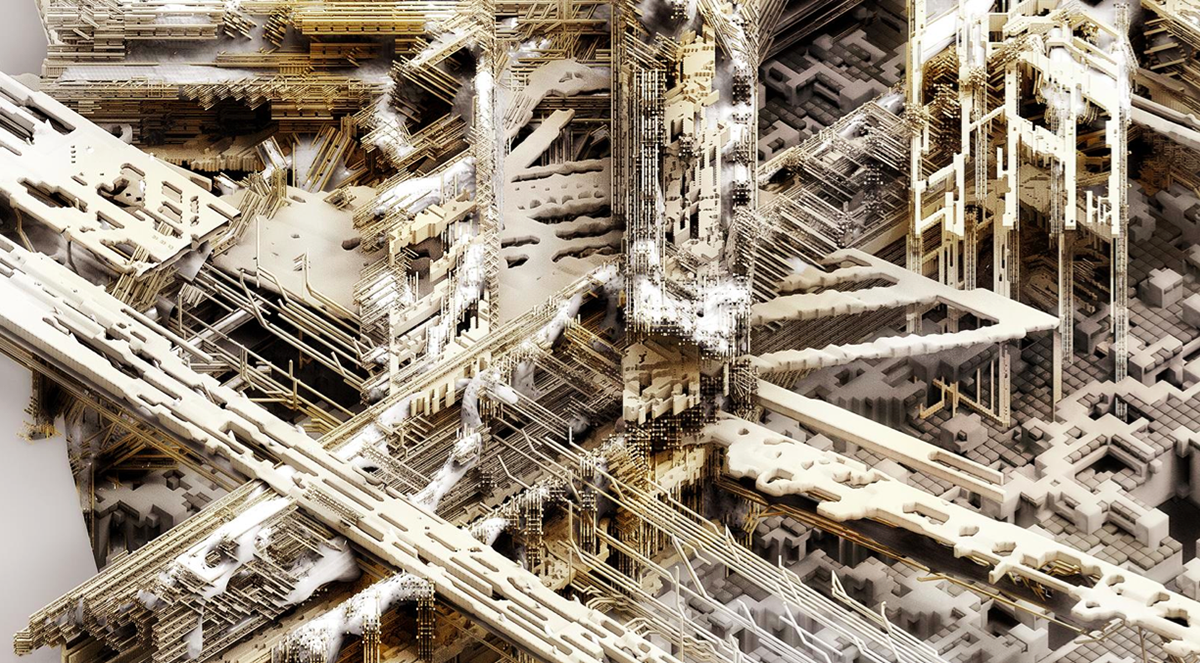Submitted by WA Contents
SCI-Arc Launches new scholarships for SCI-Arc EDGE, Center for Advanced Studies in Architecture
United States Architecture News - Nov 14, 2016 - 17:34 17986 views

The Southern California Institute of Architecture (SCI-Arc) announced four new scholarships for SCI-Arc EDGE, Center for Advanced Studies in Architecture. A scholarship covering the full cost of tuition will be given to exceptional applicants in each of the 3-semester Master degree programs: Master of Science in Architectural Technologies, Master of Science in the Design of Cities, Master of Arts in Fiction and Entertainment, and Master of Science in Design Theory and Pedagogy. Scholarships will be given based on merit and will be available to both domestic and international applicants.
''I’m extremely proud to announce these new scholarships,'' said David Ruy, Chair of Postgraduate Programs. ''It represents SCI-Arc EDGE’s complete commitment to forward- thinking scholarship and research during what has now become clear as an uncertain moment in history.'' The deadline for SCI-Arc EDGE’s postgraduate degree programs is January 15, 2017. For more information, please visit SCI-Arc’s official website.
SCI-Arc EDGE is a new platform for advanced studies in architecture. Its innovative postgraduate degree programs are designed to test the theoretical and practical limits of architectural innovation in order to launch new architectural careers for the twenty-first century. Each program identifies a distinct territory in the emerging milieus of the contemporary world and empowers students to become active stakeholders in the construction of the future.

SCI-Arc EDGE, Architectural Technologies is a one-year (three term) postgraduate degree program leading to a Master of Science in Architectural Technologies. After nearly three decades of radical innovations that have utterly transformed the way architecture is designed and built, the Architectural Technologies program aims to establish a new technological discourse for architecture. An open-ended platform for practical training and theoretical research, the Architectural Technologies program builds on SCI-Arc’s well-established international reputation for technological innovation in architectural design.
Technologies come and go, but the general problem of technology itself and what we do with it as architects remains a persistent problem. Students in the program are asked to master existing technologies as an entry point for completely rethinking them. Like at no other time in architectural history, the production of meaningful architectural effects demands sophisticated technological awareness.
Students acquire expertise in technologies such as robotic fabrication, computational and parametric methods of form generation, additive manufacturing, and machine vision, but more importantly, students are asked to maintain a speculative interest in those technologies that haven’t even been invented yet. In anticipation of future technologies that we haven’t yet seen or imagined, the program develops a robust conceptual and critical framework for understanding technology’s long-standing relationship to architecture in general. As Cedric Price asked back in 1966, “Technology is the answer, but what was the question?”
The program requires attendance in the fall, spring, and summer terms.
SCI-Arc EDGE, Fiction and Entertainment is a one-year (three term) postgraduate degree program leading to a Master of Arts in Fiction and Entertainment. For nearly one hundred years, Los Angeles has been the city where the most captivating forms of fiction and entertainment have been manufactured for the world. This will also be the city where the meaning of fiction and entertainment will transform and mutate in the next one hundred years. Though architects have flirted with fiction and entertainment industries in the past, the future may require a greater degree of commitment as the role of fiction and entertainment practices in the world becomes more complex and more embedded in our environments.
Fiction is an extraordinary shared language through which we exchange ideas and engage with the world. The importance and power of media in the production of culture should not be underestimated. In contemporary life, new worlds are designed and experienced in movies, ad campaigns, videogames, viral Internet videos, or search engines. Given the vast array of media potentially available to the architect, it is both critical and urgent for the architect to widen the scope of practice beyond just buildings alone. Why shouldn't the architect design the next Hollywood blockbuster? Or the next virtual reality environment? Or the next political campaign? In a world that is more mediated than ever before, what we think the world looks like is largely determined by fiction and entertainment practices.
This program is focused on building new forms of architectural practice allied with the worlds of film, fiction, animation, marketing, games, and documentary. Working with world-renowned collaborators from these disciplines and deeply embedded within the fiction and entertainment industries of Los Angeles, this program is designed to be a place where we can tell new stories about the alternative realities of the twenty-first century.
The program requires attendance in the fall, spring, and summer terms.

SCI-Arc EDGE, Design of Cities is a one-year (three term) postgraduate degree program leading to a Master of Science in the Design of Cities. Urban design has been in the past an ambiguous practice caught between the bureaucratic and policy oriented practices of urban planning and the built scales of architecture’s design practices. Despite its ambiguous mission, how cities are to be designed remains the most important and most difficult challenge facing architecture. Most of the world’s population now lives in cities; we are witnessing an astonishing and unprecedented process of urbanization on a planetary scale. The sheer complexity of this massive movement has put into question the validity of traditional urban design concepts, and it is increasingly urgent for architects to think about how cities should be designed.
The Design of Cities program seeks to clarify the ambiguous mission of urban design by foregrounding design as the primary area of focus. Rather than surrendering design to being nothing more than an accidental byproduct of planning policies and capital investment instruments, this program makes a commitment to the premise that new constituencies and economies can also emerge from innovative design concepts. Against the conventional wisdom that cities are hopelessly complex informal networks beyond the reach of any design model, this program fundamentally believes in the power of the architectural imagination to invent meaningful and sustainable cities for the twenty-first century and beyond.
The program requires attendance in the fall, spring, and summer terms.
SCI-Arc EDGE, Design Theory and Pedagogy is a unique one-year (three term) postgraduate degree program leading to a Master of Science in Design Theory and Pedagogy. The program is highly competitive and requires a terminal degree in architecture for admission (B Arch, M Arch, or equivalent).
Where will the next generation of theorists and teachers come from? Because of how the world is changing, this question may be a complex one moving forward in architecture. The strict separation between practice and academia has been fading, but has now become completely ambiguous due to new research models at the university and new knowledge-based forms of practice. Accordingly, this program addresses a new kind of career that has emerged in architecture. In recent years, a new kind of architect- theorist-educator has become a progressively more important voice in design culture. Despite the importance of this new kind of architect, academia hasn’t been able to produce a program to specifically train talented young architects to occupy this new space and facilitate the development of these new protagonists. At the traditional university, we primarily find today professional programs to train practitioners and PhD programs to train scholars. This program is intended to occupy the space in between these two known models of education and targets specifically a hybrid career in academia where the next generation of design studio instructors can emerge.
This program focuses on the development an intellectual framework that can sustain a life-long theoretical project in architecture. Students are given substantial opportunities for acquiring practical teaching experiences in how such an intellectual framework can find synergies in pedagogical practices today. Utilizing SCI-Arc itself as a hands-on teaching laboratory, the long-term project of this program is to develop new design pedagogies and construct a new apparatus for the production of design theory.
The program requires attendance in the fall, spring, and summer terms.
All images courtesy of SCI-Arc
> via SCI-Arc
